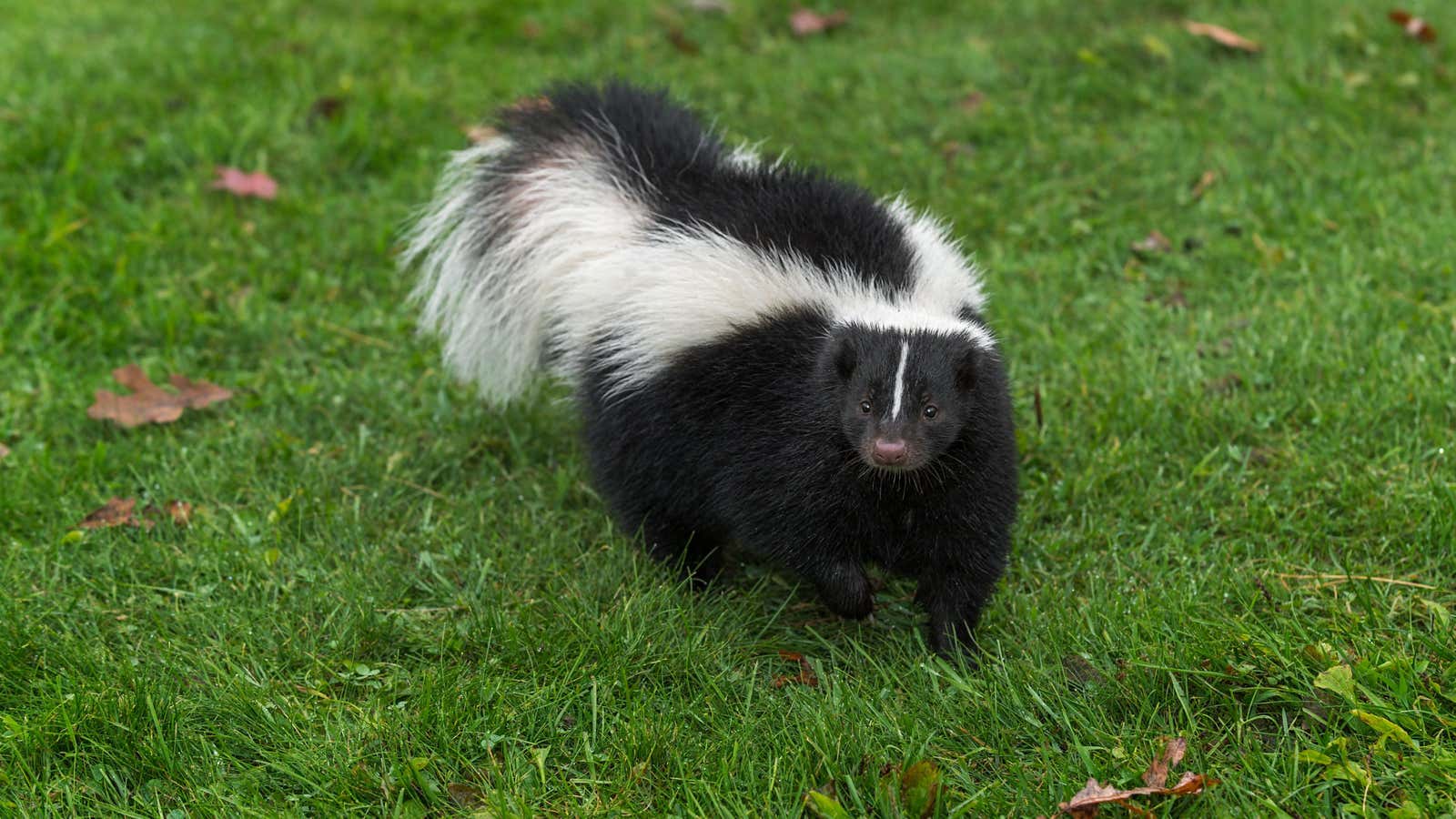How to Keep Skunks Out of Your Yard

When threatened, some people make inappropriate jokes or act very confidently as defense mechanisms. Skunks, on the other hand, release foul-smelling aerosols.
And while they spend most of their time sleeping and foraging (including many insects and rodents widely considered pests), some people (understandably) don’t want skunks living in their yard, especially if they have dogs or other pets outdoors. In that case, here’s how to determine if skunks live in your area, and how to prevent them in the first place.
Signs that skunks may be living in your yard
Since skunks are nocturnal, you may only know one or more critters are living near your home after your dog returns from a potty break in the backyard before bedtime, exuding a familiar pungent odor.
But since this is the kind of situation you want to avoid, watch out for other signs that a skunk (or more) may be living in your yard:
- Persistent faint musky odors under a building or woodpile
- Small, shallow holes in the lawn (caused by grub-foraging skunks)
- plants overturned
- Damage to the lower leaves or ears of ripening horticultural crops (including corn)
How to keep skunks out of your yard
The best way to prevent skunks from entering your yard is to make it inhospitable enough that they want to live elsewhere. It’s not about hurting the skunks in any way, but if you’ve inadvertently created luxurious skunk housing behind your own home, you can make it a little less welcoming. Here’s how to do it :
stop feeding them
If you feed the birds, you also feed the skunks. Sure, placing bird feeders high on the poles helps a bit, but think about how much of that birdseed ends up on the ground, providing the skunks with a smorgasbord you can eat.
The same applies to feeding your pets outdoors. Skunks don’t care if your cat’s or dog’s name is printed on their bowl; they are going to treat themselves to Fuzzy’s festive feast.
Stop indirectly feeding them
Even if you don’t intentionally feed the skunks, you can do so indirectly by having an easily accessible garden full of fresh produce for them, or by leaving the lids on the trash cans open (they aren’t picky).
Create a housing shortage
In addition to food, skunks also need shelter, and your backyard may be full of ready-made housing for them. Some of their favorite properties include:
- Wooden and stone piles
- Sheds and other outbuildings
- Dog houses
- Openings for concrete slabs
- Walkways under the porch
- Other partially sheltered nooks and crannies outdoors
For the most part, these are not structures that you can simply move or get rid of, so do your best to keep them as secure as possible by eliminating (or at least temporarily closing) any potential entry points.